The Rugby World Cup 2023 kicked off last week with a captivating clash between hosts France and formidable opponents New Zealand. In a thrilling encounter, France emerged victorious, securing a 27-13 win over the All Blacks. This electrifying start set the tone for not only a great month of rugby but also some key audience insights and strong outcomes for brands who are sponsoring and advertising on the RWC.
Using our UK-based panel, we assessed three highly anticipated games on ITV, and the outcome did not disappoint. Alongside the opening match, we evaluated the thrilling England victory over Argentina and South Africa’s hard-won triumph against Scotland. These matches truly lived up to expectations on the first weekend!
Strong Viewers’ Engagement
Based on the analysis of the three games, the average score, when compared to Mediaprobe’s benchmark for live sports broadcasts in the UK, surpassed the norm by 3%. This showcases the exceptional quality of the sports action experienced by viewers and their strong engagement with the content. Stronger emotional impact of the content relates to increased viewer engagement and higher advertising impact and brand awareness.
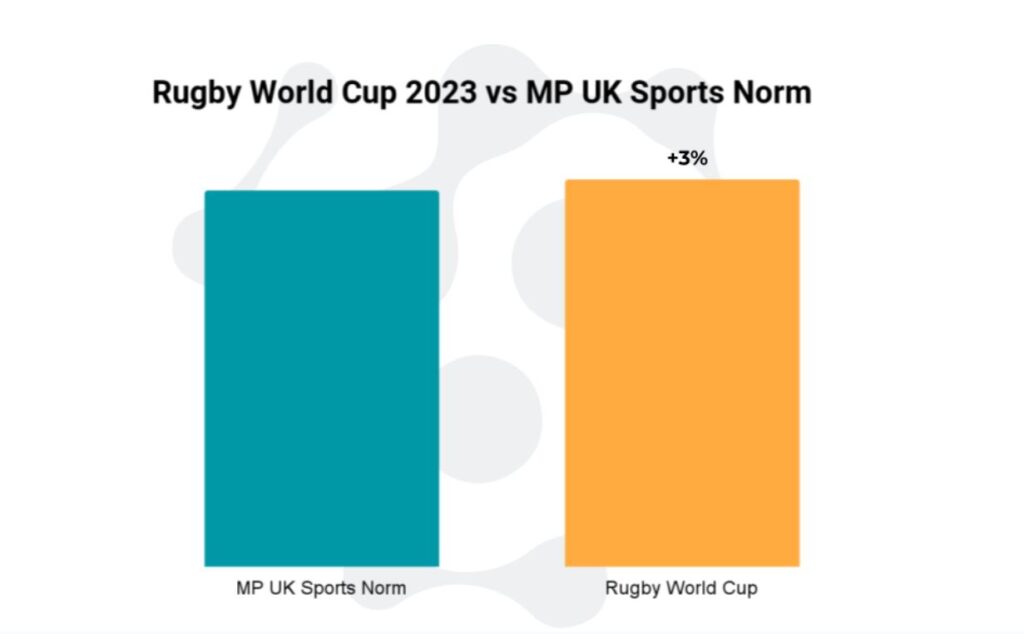
Compared with other major international tournaments on UK television and taking into account that we’re only at the start of the competition, the Rugby World Cup 2023 has, so far, fared better than both the FIFA Men’s World Cup 2022 and the Six Nations Tournament of 2023, losing only to the FIFA Women’s World Cup 2023, which continues to show the growing appeal of women’s sports. With so much competition for advertising dollars to reach the right audience, it is critical to understand where this telecast fits within our overall sports norm and in comparison to other rugby matches.
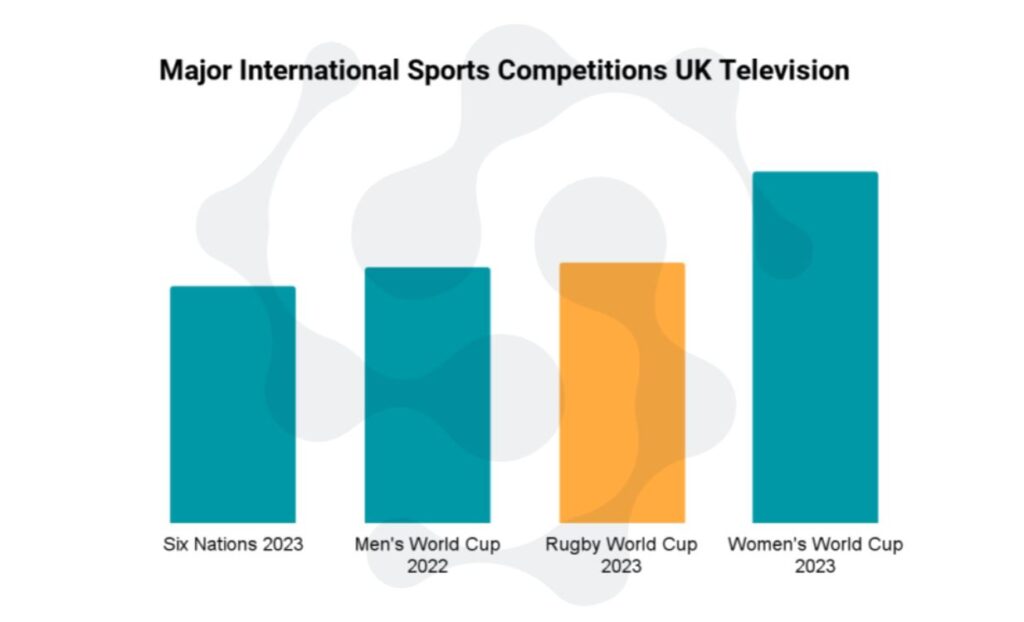
It comes as no surprise that the games that featured England and Scotland had the highest impact, resonating strongly with our UK panelists. In particular, the South Africa – Scotland match stood out as the most impactful, surpassing the norm by an impressive 10%. Additionally, the clash between England and Argentina exceeded expectations, outperforming the norm by a remarkable 9%. These remarkable results highlight the excitement and significance of these matches for our panelists in the UK.
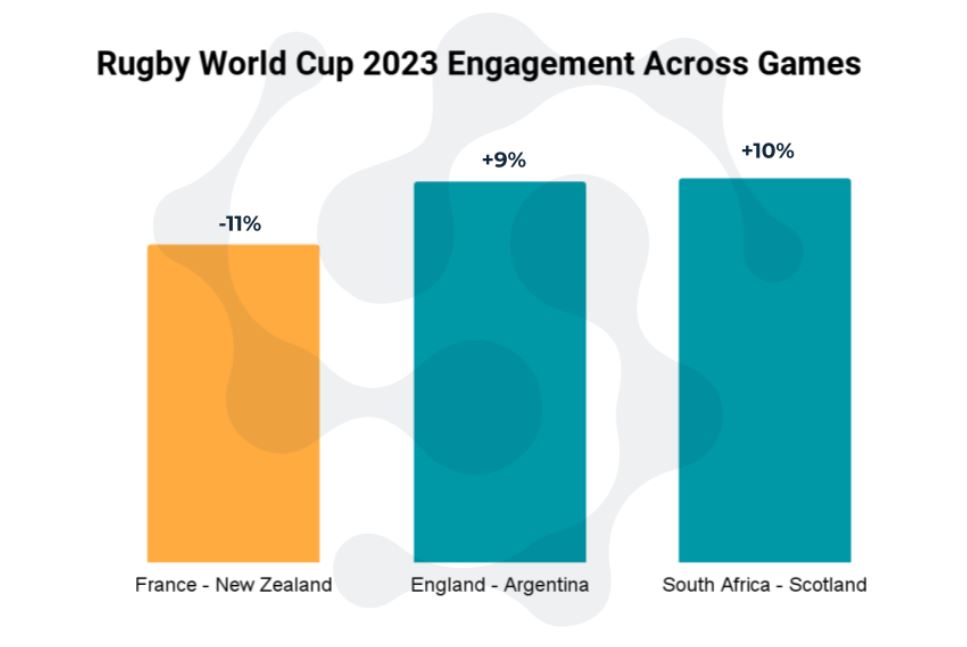
A Winning Proposal for Brands
Viewers engage equally with both content and advertising during the broadcast, with a balanced 1:1 ratio on the Emotional Impact Score (EIS) when comparing game content to commercial breaks. This highlights the undeniable value of the game broadcasts, providing a unique opportunity for brands to reach their target audience in an impactful way, and boost brand exposure and influence.
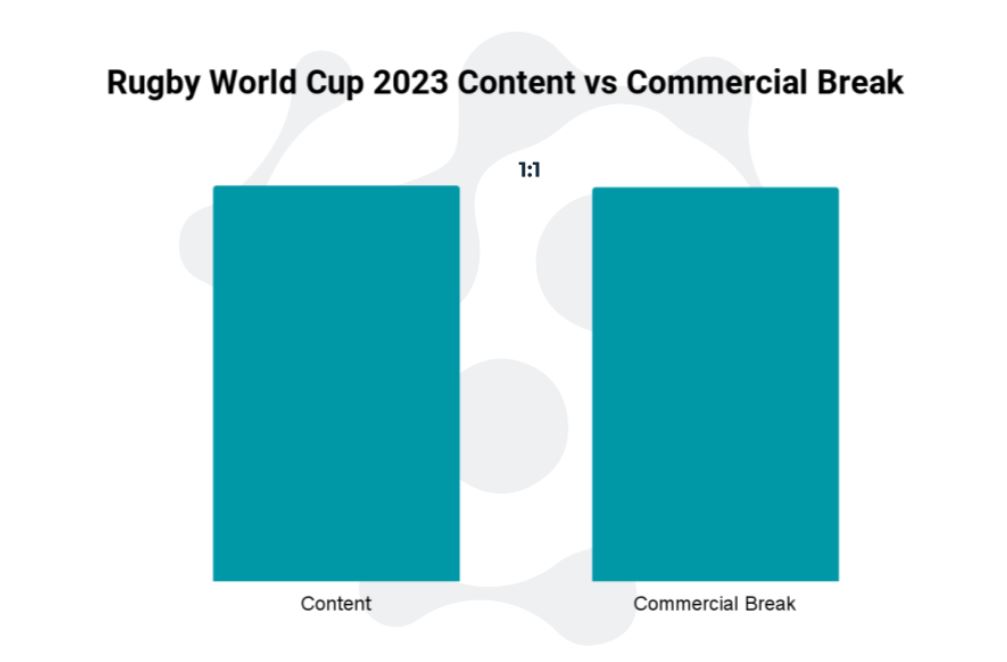
A good example of how brands are taking advantage of the high emotional impact of the games’ broadcasts, is the Land Rover Defender, the Worldwide Partner of the 2023 Rugby World Cup.
With a campaign entitled “Embrace the Impossible”, Defender launched a set of several vignettes and ads showing the vehicle and how it performs in the roughest of settings, as well as highlighting the toughness of rugby players, from aspiring youngsters to the most veteran seniors. A particular feature of the campaign is that it is contextually aligned with the content where it is featured.
Across the three broadcasts, Defender achieved an EIS above the content and the average for all advertising, outscoring it by 11%. More relevantly, from a branding standpoint, Defender tops brand awareness on all three broadcasts, with roughly half the viewers recalling seeing the brand without any aid in a post-broadcast survey.
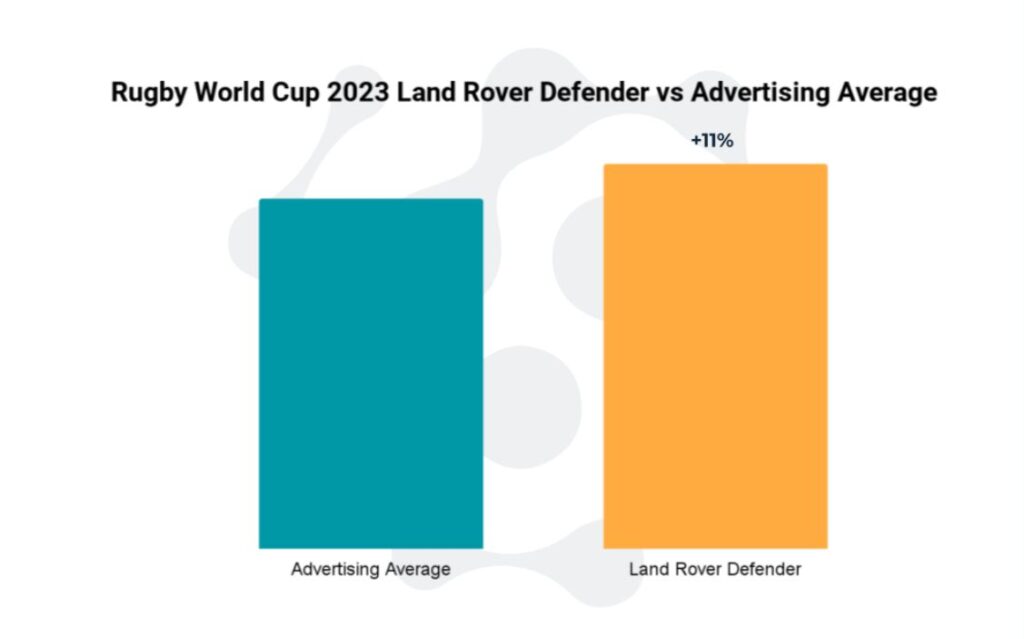
Conclusion
While we are still at the start of the tournament, the Rugby World Cup 2023 promises to continue to be a winner in terms of UK television broadcast engagement. Brands associated with the tournament are also poised to win, as the Land Rover Defender’s campaign has proved so far, showing the strength of its message and creativity within the context of such a popular sporting event.
Keep following us for more information on how the tournament evolves and for more insight on how emotional engagement measurement transforms media and advertising evolution.
Compared with other major international tournaments on UK television and taking into account that we’re only at the start of the competition, the Rugby World Cup 2023 has, so far, fared better than both the FIFA Men’s World Cup 2022 and the Six Nations Tournament of 2023, losing only to the FIFA Women’s World Cup 2023, which continues to show the growing appeal of women’s sports. With so much competition for advertising dollars to reach the right audience, it is critical to understand where this telecast fits within our overall sports norm and in comparison to other rugby matches.
It comes as no surprise that the games that featured England and Scotland had the highest impact, resonating strongly with our UK panelists. In particular, the South Africa – Scotland match stood out as the most impactful, surpassing the norm by an impressive 10%. Additionally, the clash between England and Argentina exceeded expectations, outperforming the norm by a remarkable 9%. These remarkable results highlight the excitement and significance of these matches for our panelists in the UK.
A Winning Proposal for Brands
Viewers engage equally with both content and advertising during the broadcast, with a balanced 1:1 ratio on the Emotional Impact Score (EIS) when comparing game content to commercial breaks. This highlights the undeniable value of the game broadcasts, providing a unique opportunity for brands to reach their target audience in an impactful way, and boost brand exposure and influence.
A good example of how brands are taking advantage of the high emotional impact of the games’ broadcasts, is the Land Rover Defender, the Worldwide Partner of the 2023 Rugby World Cup.
With a campaign entitled “Embrace the Impossible”, Defender launched a set of several vignettes and ads showing the vehicle and how it performs in the roughest of settings, as well as highlighting the toughness of rugby players, from aspiring youngsters to the most veteran seniors. A particular feature of the campaign is that it is contextually aligned with the content where it is featured.
Across the three broadcasts, Defender achieved an EIS above the content and the average for all advertising, outscoring it by 11%. More relevantly, from a branding standpoint, Defender tops brand awareness on all three broadcasts, with roughly half the viewers recalling seeing the brand without any aid in a post-broadcast survey.
Conclusion
While we are still at the start of the tournament, the Rugby World Cup 2023 promises to continue to be a winner in terms of UK television broadcast engagement. Brands associated with the tournament are also poised to win, as the Land Rover Defender’s campaign has proved so far, showing the strength of its message and creativity within the context of such a popular sporting event.
Keep following us for more information on how the tournament evolves and for more insight on how emotional engagement measurement transforms media and advertising evolution.

